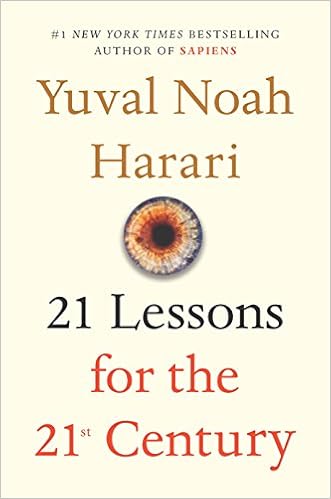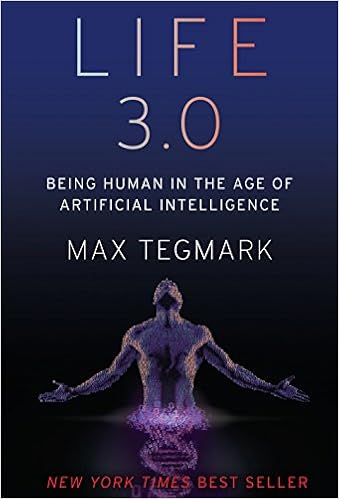While living in this fast-paced modern world, have you ever thought about what our future might be like? Through this article, we want to impart knowledge by mentioning these high-tech books to mull over this question.
Modern times are marked by frequent technological improvements. The use of technology has had a huge impact on civilization today. It has an influence on people's daily lives and has both beneficial and detrimental effects on the environment. Experts predict that advances in artificial intelligence will improve the lives of the majority of people over the next two decades, but many people are concerned about how these changes may alter. With each small step, industrial civilization moves closer to becoming an automated society. Right now, individuals are vying with one another to rid the system of all evidence of "human faults." By this point, artificial intelligence has surpassed itself in almost every field. Many have speculated that it may one day be able to outperform human intelligence in every aspect. As a result, "human jobs" are rendered useless, contributing to high unemployment rates. A threat from high-tech forces like blockchain, big data, genetic engineering, biotechnology, and machine learning is likely to emerge, in addition to concerns about robots and automation pushing humans out of the workforce.
Therefore, this article raises some incredibly challenging problems for the reader to solve and leaves them pondering about the kind of future they want to build. As we construct more machines with the capacity to learn, will computers someday supplant humans as the superior race? Will we still be able to control them when they get knowledge beyond what we did?
Book 1: AI 2041: Ten Visions for Our Future
Author: Kai-Fu Lee, Chen Qiufan Category: Artificial Intelligence & Semantics, Computers & Technology Industry, Social Sciences
In collaboration with renowned novelist Chen Qiufan, Kai-Fu Lee imagines the world of 2041 and how AI will influence it in this intriguing and wholly original work named “AI 2041: Ten Visions for Our Future”. They introduce readers to ten riveting short stories that take place in various eye-opening 2041 locations.Following some highly entertaining anecdotes that transport us to the future, they proceed to give intricately detailed descriptions of the technology in use.The advent of AI will be the turning point of the twenty-first century. The fundamental process of integrating AI into a company entails first comprehending the technology before attempting to implement it. Certain aspects of daily life won't be recognizable twenty years from now. Through human-machine collaboration, AI will produce immense wealth, revolutionize medicine and education, and create new forms of communication and entertainment media. But while AI liberates us from routine jobs, it will also threaten the fundamental tenets of our economic and social system. Meanwhile, artificial intelligence (AI) will create new threats from autonomous weapons and intelligent technology that inherits human prejudice. Since we are at a pivotal time, people must become aware of AI's bright routes and the existential dangers they pose to our way of life. This book will therefore be informative and eye-opening for those wanting to grasp how AI can be applied.
Buy this book at Amazon Book Store.
Book 2: 21 Lessons for the 21st Century Hardcover – September 4, 2018
Author: Yuval Noah Harari Category: History of Civilization & Culture, Cultural Anthropology, Politics & Government
The most important technologically-related political, social, and economic issues of the present are highlighted in "21 Lessons for the 21st Century," which also serves to get us ready for the future's uncertainties. This book provides an insightful framework for overcoming these concerns. It is entirely focused on the present, in contrast to the author's two prior big books, “Sapiens” and “Homo Deus'', which focused on the past and future, respectively. He claims that continuing to worry is the key to conquering our anxieties.Therefore, it's crucial to understand what worries to have and how much to worry about them.The author addresses the challenge of navigating life in the face of constant and disorienting change and poses the crucial questions we must ask ourselves to survive. As technology develops faster than our understanding of it, hacking becomes a tactic of war, and the world feels more divided than ever.
The first chapter of the book discusses how technology, including robotics, AI, and biotechnology, has affected society. Low-paying occupations are likely to disappear as a result of this significant transformation in the structure of employment. As a result, a class of people who are unemployed and deemed "useless" by the author will develop. In his passionate defense of overhauling our educational institutions, he calls for the "four Cs"—critical thinking, communication, cooperation, and creativity—to replace the weight of rapidly out-of-date substantive information that we currently place on them. With access to information being easier than ever before for everyone, education has traditionally been about passing along information and expertise.
Moreover, an in-depth discussion is given on the global political transition, which includes the liberal movement's seeming extinction. He discusses how nationalist parties are becoming more popular across the globe. In the book's later sections, the author cautions against the risks of analyzing aggregate data, which is less individualized in the book's later sections. Additional chapters also cover immigration, religion, justice, and meditation.
The book "21 Lessons for the 21st Century" will broaden the brains of discerning readers. Therefore, we should all be considering the subjects covered in the book. The majority of us are too preoccupied with trying to gain control of our circumstances and exert influence over them, as the author notes, to truly understand who we are and the world in which we exist.
Buy this book at Amazon Book Store.
Book 3: Life 3.0: Being Human in the Age of Artificial Intelligence Audible Audiobook – Unabridged
Author: Max Tegmark Category: Robotics, Biotechnology, Scientific Experiments & Projects
The most crucial question of our current times is how to build a compassionate future human civilization as we combine our innate intelligence with the even greater intelligence that we have generated. The repercussions of AI's potential metamorphosis could eventually be seen, but will they be positive or negative? The verdict is still forthcoming, but this insightful, engaging, and approachable book by a renowned scientist aids in determining the chances.
You can participate in what might be the most important conversation of our time with the support of this book. Tegmark keeps his outlook on the future ambiguous throughout the entire book. He admits it's difficult to predict what will happen because there are so many variables to consider. It does not back down from any of the competing points of view or the most disputed subjects, including superintelligence, purpose, consciousness, and the very final physical bounds of life in the universe. He covers a wide range of subjects with outstanding clarity, from computing to cosmology, and reminds us that many of these ideas were created by science fiction writers more than half a century ago. And all the while, he urges us to consider how we want AI to influence our lives, professions, legal frameworks, and weaponry. How will we get along with a manufactured intellect that is more advanced than our own?
The author pushes the reader to believe that they have a big say in what the future holds for us and that we don't have to—and most definitely can't—cling to a fatalistic outlook. The most impressive, realistic, and optimistic part of the book is the explanation of how researchers in AI came to an understanding of the route AI should take—one that is proactive in addressing the issues it poses and the consequences it will have for human society.
Your perspective will be changed by the future in an AI-driven world after reading this book, and it forces you to think: Will it turn out to be a perfect society or a global crisis?
Buy this book at Amazon Book Store.
Book 4: Human Compatible: Artificial Intelligence and the Problem of Control Hardcover – October 8, 2019
Author: Stuart Russell Category: Robotics, Biotechnology, Robotics & Automation
Superhuman artificial intelligence is viewed by the general public as a rising storm that undermines not only jobs and interpersonal relationships but also mankind as a whole. People and robots will inevitably clash, and the outcome is all too apparent. According to this revolutionary book, this nightmare can be avoided, but only if we rethink AI from the initial concept. The notion of intelligence in both humans and machines was first examined by Russell. He outlines the short-term advantages we could foresee, such as intelligent personal assistants and considerably faster scientific research, while also highlighting the AI advancements that must be achieved before we obtain superhuman AI. He also discusses how AI is already being abused by humanity, including through the use of deadly weapons. If the anticipated technological improvements occur and superhuman AI starts to emerge, we will have developed entities that are substantially stronger than we are. But how do we make sure they never, ever have any control over us? According to Russell, we may reframe AI around the notion that robots are inherently ambiguous about the human preferences they must accommodate when they are being designed. Such machines would work in a humble, kind, and dedicated way to attain our aims rather than theirs. Therefore, he appreciates this new platform, we could create robots that are demonstrably helpful and considerate.
Buy this book at Amazon Book Store.
This article is authored by: Sheuly Ahmed




Comments